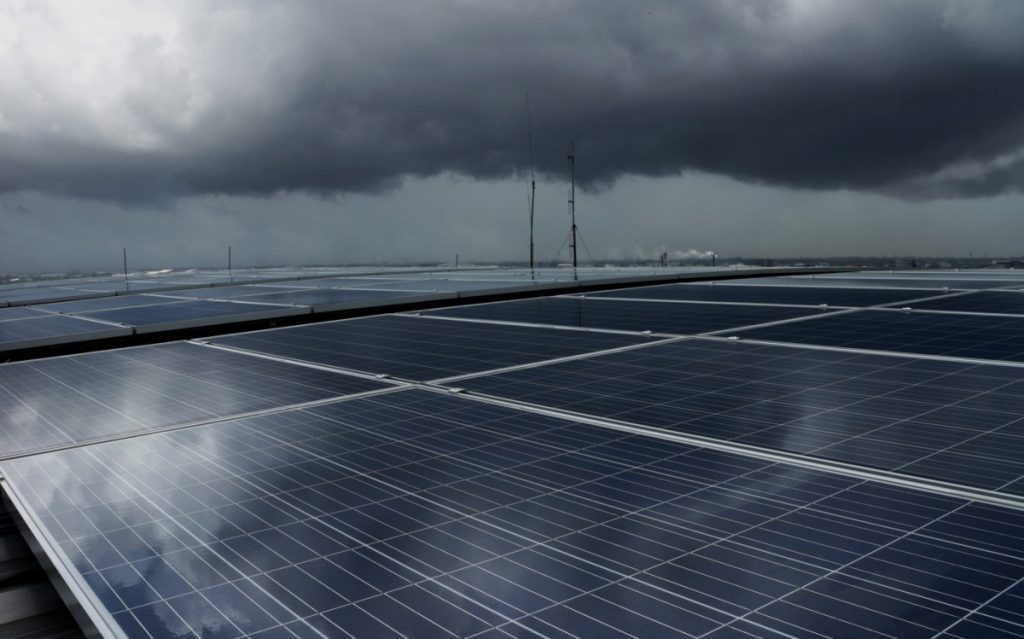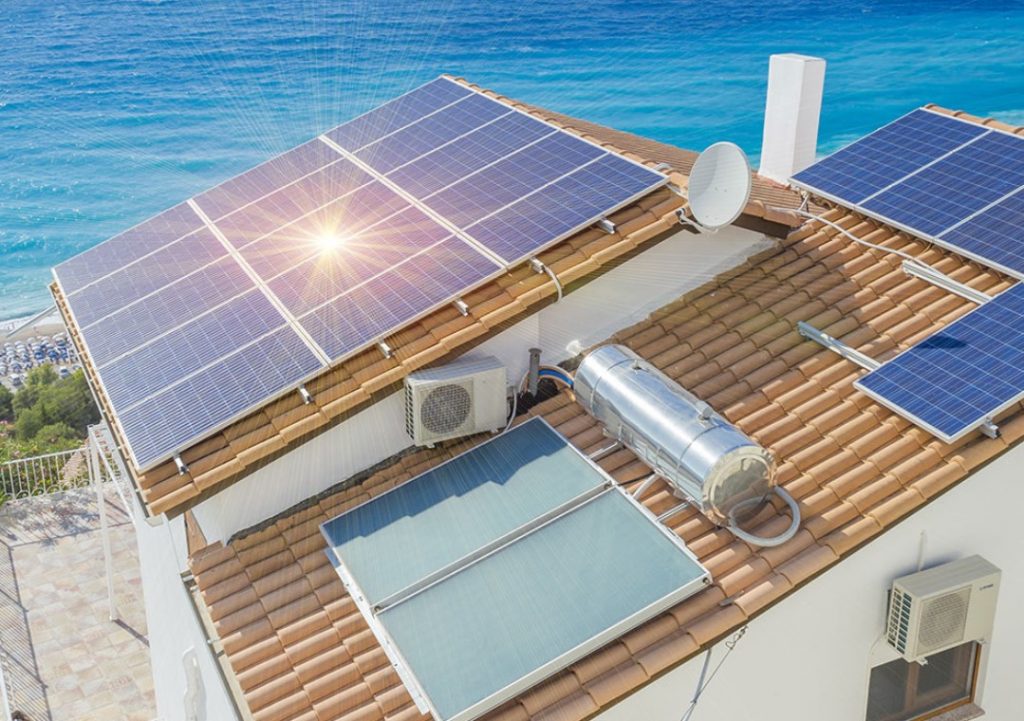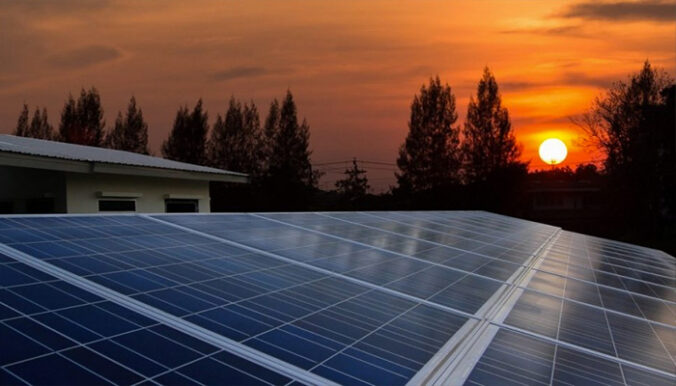One of the most common questions among users interested in solar energy is whether it works at night or on cloudy days. In the midst of the boom in solar energy, and renewable energies in general, it is necessary to clarify this question and explain how solar panels work when there is no light. Do you have any doubts about this? Keep reading this article!
What happens with solar energy at night?
Solar energy is a type of energy that works by directly harnessing the sun’s electromagnetic radiation. For this purpose, solar panels are used, which can be thermal or photovoltaic, thanks to which heating or electricity is generated, respectively. As we said, solar energy takes advantage of the sun’s radiation, therefore, for solar panels to generate energy it is necessary that there is light. Thus, solar energy stops its production at night. However, this does not mean that solar energy stops working at night -or that the investment in a solar installation is no longer profitable-, since the self-consumption systems in a home, in the case of isolated installations, include batteries in which the electricity generated during the day -in the case of photovoltaic solar panels- can be stored.
These can be used to make use of solar energy without the sun. Of course, it all depends on the capacity of the batteries, as well as the amount of energy that has been generated during the day. It should be noted that batteries can store all the surplus energy that is not being used during the day.
What happens with solar energy on cloudy days?

As we said, for a solar panel to work, it is necessary for it to receive sunlight. In cases where the weather is not suitable, either because it is cloudy or rainy, solar panels do not stop working. They continue to generate electricity, but the production capacity decreases compared to sunny days. In general, the yield is usually 10% to 25% compared to the usual yield. This varies depending on the technology used – whether they are monocrystalline or polycrystalline plates – and the thickness of the clouds. In fact, if there is little cloud cover and the clouds are not very thick, it is possible for solar panels to operate at up to 60% capacity.
Cold or hot temperatures What is the ideal temperature for the operation of a solar panel?
Despite popular belief, the hotter it gets, the more efficient the solar panel will not always be. Although we have already seen that solar energy cannot be used without the sun, unless, of course, the sky is cloudy, we must bear in mind that cold or temperature have nothing to do with the performance of the solar panel, it is the radiation that has an influence. In fact, when solar panels exceed a temperature of 25ºC, efficiency tends to decrease between 10% and 25%. This is shown on the labeling of each solar panel. Generally, the output power is 25ºC -the standard power-. So, on foggy days or in cool climates it can work better than we think, sometimes better than on days with lots of sunshine and very high temperatures.
The efficiency of solar panels
The efficiency of solar panels translates into the amount of energy they are able to convert into electricity. That is, what percentage of the sunlight they receive they can harness and convert into electricity. Of course, the higher this is, the more efficient the solar panel will be and the greater the amount it generates (this is expressed in kWh), and this is what we are most interested in as opposed to savings. In general, solar panels use between 19% and 22% of the energy – the latter are the most efficient on the market to date. Although we have also found some records of solar panels that have an efficiency of 24%.
How to make the most of solar radiation

We have already talked about what happens with solar energy at night and with solar energy without sun -as in cloudy days-. However, not everything has to do with the time of day or weather conditions when it comes to making the most of solar energy. The use of solar energy depends largely on:
- The orientation of the roof: Depending on the orientation you can maximize the use of solar panels, making the most of solar radiation. You should always opt for the south orientation -whenever possible-. Production will decrease when the solar panels are facing east or west, but they should never be installed if the orientation is north.
- The inclination of the solar panel: The inclination also influences the productivity of the solar panels, therefore, this should be adjusted according to the season of the year; or opt for an intermediate point to keep it fixed throughout the year. In the first case, for the summer season, it will be necessary to opt for an inclination of 10º to 15º; while in the winter season it is necessary to opt for 45º to 50º. In the second case, if you prefer to keep the solar panels fixed throughout the year, it is advisable that they have an inclination of 30º to 40º.
Where to buy quality solar panels?
BlueSolarPanel is one of the companies specializing in the sale of quality solar panels at a good price. In our store you can find a large number of solar panel kits, as well as photovoltaic solar panels of all types and other elements of the installation, such as batteries -to make use of solar energy at night or use solar energy without sun-, charge controllers, inverters and solar panel structures. We offer you the best value for money in the market.


Leave a Reply